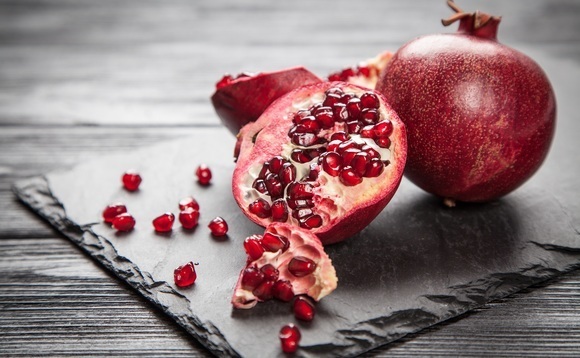
Deal focus: Prosus looks to aggregate India's fruit farmers

B2B marketplaces are the prevalent theme in Prosus Ventures’ agricultural technology investments in Asia. However, as fruit specialist Vegrow demonstrates, supply chain dynamics are not uniform
Apples from Kashmir and Himachal Pradesh. Pomegranates from Maharashtra, Gujarat, and Rajasthan. Citrus fruits from Maharashtra. The logistics behind an India-based online agriculture marketplace that focuses solely on fruit are not easy, claims Ashutosh Sharma, head of India investments at Prosus Ventures.
"You must build a supply chain that is not local or hyperlocal but pan-India. It's not enough just to gate the technology quickly; you must be able to move products 2,000 kilometres quickly because fruit is perishable. Wheat keeps for up to three months – an apple goes bad in 20 days," he said.
"You need that supply chain muscle and then you need to be able to create demand that caters to the entire farm. Farmers don't sell by grade; you take everything or nothing."
Prosus, an internet industry investor majority owned by Naspers, made its first agriculture technology investment in Asia in early 2021, leading a USD 30m Series C for DeHaat. The start-up, which has gone on to achieve a valuation of more than USD 1bn, operates a B2B marketplace that helps farmers distribute crops, acquire inputs, and source advisory services and financing.
Subsequent investments in the space have focused on similar business models: Southeast Asia-based Aruna and India's Captain Fresh, which serve fishers and include exports as well as domestic sales; and, most recently, fruit marketplace Vegrow. Prosus led a USD 25m Series B, with support from Matrix Partners India, Elevation Capital, Lightspeed India Partners, and Ankur Capital.
The spike in interest in agritech is a product of deepening smart phone penetration. "Two years ago, even if farmers had smart phones, they didn't have data. Now, everyone has a phone, everyone has data, everyone has YouTube, and everyone reads news on platforms like Dailyhunt," said Sharma. "There is a way to reach out to them."
When examining marketplace opportunities, Prosus has two key criteria. First, marketplaces must provide advisory services in addition to aggregating supply and selling it into wholesale and modern retail channels. Without that continuous engagement, there is a danger that farmers will forget about a marketplace by the time of the next harvest.
Second, deepening smart phone penetration doesn't necessarily equate to trust in digital platforms, so start-ups must target key individuals within supply chains, who perform a role not unlike that of social media influencers. These individuals – often store owners who may farm small tracts of land – collect the harvest, provide inputs, and deal with the platform, receiving a fee for their trouble.
The platform is also transformative in that it widens the individual's access to inputs. "Often, he only keeps two types of seeds because he doesn't want to hold inventory he can't sell. A technology company can take orders and make deliveries on a just-in-time basis. Suddenly, there are more than 1,000 SKUs [stock-keeping units] available," said Sharma.
Vegrow, which was established in 2020 by a team of founders with experience in technology platforms and agricultural procurement, claims revenue growth of 15x over the past 12 months and gross margins of around 20%. It has signed up more than 20,000 farmers and plugs them into a network of wholesalers and semi-wholesalers in modern and general trade in 100 cities.
Sharma notes that most of the agritech marketplaces in the Prosus portfolio are profitable based on contribution margin. These calculations do not include all the platform costs. Vegrow appealed to Prosus as one of few pure-play fruit platforms; others tend to offer fruit alongside vegetables. But fruit poses a different set of challenges to most crops.
"DeHaat connects small farmers all over India with consolidated buyers – it will only deal with larger players. With fruit, you might have 10 different product grades coming from the same tree. The buyer set runs from modern trade through general trade to mom-and-pop stores. For example, the biggest apples go to Wholefoods and the smallest go to street hawkers," said Sharma.
Technology plays a role in organising and optimising the supply chain. The question for all marketplaces is whether they can leverage technology and industry knowledge to achieve scale. Vegrow has a large target – India's fruit market is worth USD 60bn – but its offering is largely restricted to apples, pomegranates, and citrus fruits. Can mangos and bananas be added to the mix?
"Every fruit supply chain is different, every fruit demand set is very different, and every fruit growing centre is very different," said Sharma. "It's not like you are building a new product just for bananas; the business must operate as a platform. If Vegrow can expand in this way, it could become a very interesting company."
Latest News
Asian GPs slow implementation of ESG policies - survey
Asia-based private equity firms are assigning more dedicated resources to environment, social, and governance (ESG) programmes, but policy changes have slowed in the past 12 months, in part due to concerns raised internally and by LPs, according to a...
Singapore fintech start-up LXA gets $10m seed round
New Enterprise Associates (NEA) has led a USD 10m seed round for Singapore’s LXA, a financial technology start-up launched by a former Asia senior executive at The Blackstone Group.
India's InCred announces $60m round, claims unicorn status
Indian non-bank lender InCred Financial Services said it has received INR 5bn (USD 60m) at a valuation of at least USD 1bn from unnamed investors including “a global private equity fund.”
Insight leads $50m round for Australia's Roller
Insight Partners has led a USD 50m round for Australia’s Roller, a venue management software provider specializing in family fun parks.







